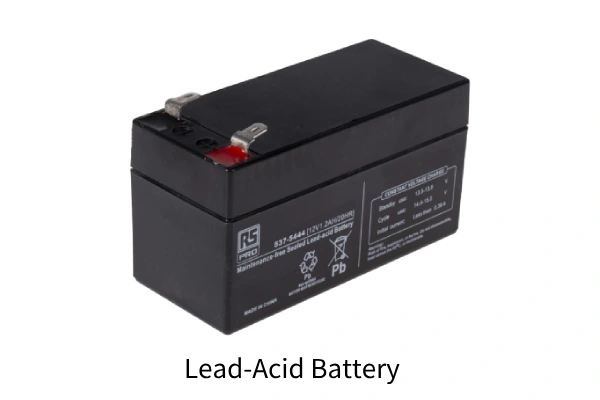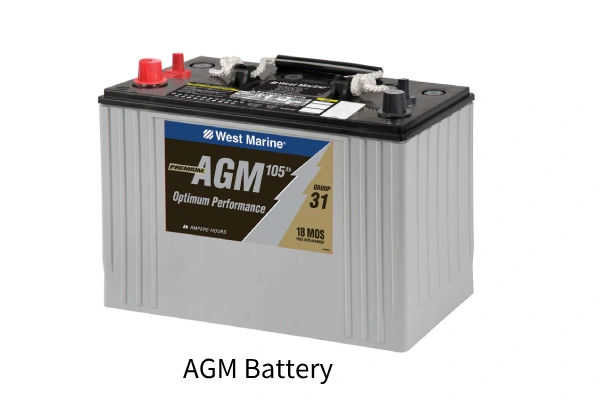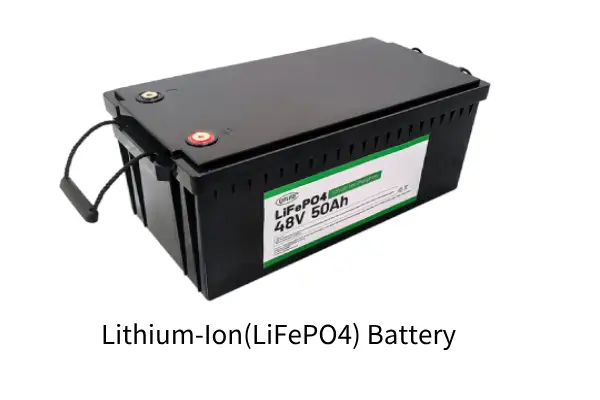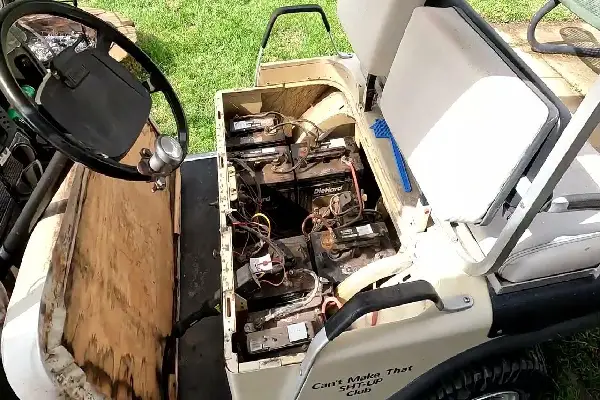When it comes to golf carts, the battery is one of the most important components that determine the performance, range, and overall user experience. As the golf cart industry continues to evolve, many owners are now considering the upgrade from traditional lead-acid batteries to 48V lithium golf cart batteries for their superior benefits. In fact, according to a 2023 industry report, the demand for lithium-ion batteries in golf carts is expected to increase by over 30% in the next five years. With so many options available, how do you know which 48V golf cart battery is the best for your needs? This guide will walk you through everything you need to know about choosing the right battery and getting the most out of your investment.
Part 1. Understanding 48V golf cart battery types
When choosing a battery for your golf cart, understanding the different types available is key. Primarily, there are two types of 48V golf cart batteries: lead-acid and lithium-ion.
1.Lead-Acid Batteries
Lead-acid batteries have been the traditional choice for golf carts for decades. They are relatively inexpensive but come with several limitations. Lead-acid batteries require more frequent maintenance and have a shorter lifespan compared to lithium-ion batteries. They are also bulkier and heavier, which can affect the performance and range of your golf cart.
2. Lithium-Ion Batteries
Lithium-ion batteries, specifically 48V lithium golf cart batteries, are becoming increasingly popular due to their numerous advantages. These include a longer lifespan, faster charging times, and better performance. They are also much lighter than their lead-acid counterparts, making them a more efficient option. Furthermore, lithium-ion batteries require little to no maintenance and can provide better overall value in the long run.
Part 2. Is a 48V lithium golf cart battery the best?
So, why is a 48V lithium battery considered one of the best options for your golf cart? The answer lies in their superior technology and performance.
- Longer lifespan: A 48V lithium battery can last up to 10 years, while lead-acid batteries typically last around 4-5 years. This means that although the upfront cost may be higher, you’ll spend less on replacements over time.
- Faster charging times: A lithium-ion battery can be fully charged in 4-6 hours, whereas a lead-acid battery may take up to 8-12 hours to charge fully.
- Lighter weight: A 48V lithium battery is typically 60% lighter than a lead-acid battery, improving the overall performance and efficiency of your golf cart.
- Better performance: With a 48V lithium-ion battery, your golf cart can go farther on a single charge, which is a huge benefit for longer courses or if you’re using the cart for commercial purposes.
If you’re looking for a long-term investment and higher efficiency, the best 48V lithium battery for golf carts might be the right choice.
Part 3. Why Is a 48V golf gart battery different?
A 48V golf cart battery is different from other voltage batteries because of its enhanced power output. Golf carts typically come with either 36V or 48V battery systems, and the 48V system offers several advantages over the 36V system:
- Higher power capacity: A 48V system delivers more power, enabling better acceleration, more torque, and higher top speeds for your golf cart.
- Improved range: A 48V battery can provide longer driving distances on a single charge, making it ideal for extended use on large properties or golf courses.
- More efficiency: The higher voltage means that the system operates more efficiently, allowing for less energy loss and better performance in both electric and gas-powered carts.
Part 4. What voltage battery do I need?
Choosing the right voltage for your golf cart is crucial. While 36V and 48V are the most common choices, your needs may vary depending on how you intend to use the cart.
- 36V systems: These are typically found on smaller or more affordable golf carts. They are suitable for shorter ranges and less demanding applications.
- 48V systems: These are ideal for larger, heavier golf carts or those requiring longer distances and more power. They’re also more efficient in terms of energy use.
If you need more power, speed, and range, a 48V battery system is the way to go.
Part 5. Best 48V golf cart battery specifications
When choosing a 48V golf cart battery, several factors need to be considered to ensure optimal performance and compatibility with your cart:
- Capacity (Ah): This measures the energy capacity of the battery. Higher Ah means the battery can provide more power for longer periods. For example, a 48V 200Ah battery will provide longer use than a 48V 100Ah battery.
- Charging time: Faster charging times are always preferable, especially if you need to use your cart frequently.
- Discharge rate: This measures how much power the battery can supply at once. A higher discharge rate is necessary for heavy-duty use.
- Temperature tolerance: Batteries that can operate in a wide range of temperatures will be more durable and reliable in various climates.
Part 6. Why should you care about golf cart battery capacity?
Battery capacity plays a critical role in determining how long you can use your golf cart between charges. A battery with a higher Ah rating (like a 48V 200Ah battery) will last longer, allowing you to travel further on a single charge. For those using their golf carts for commercial purposes or on larger properties, this can significantly reduce downtime and charging frequency.
Part 7. How much do 48V golf cart batteries cost?
The cost of a 48V golf cart battery varies depending on the type (lead-acid or lithium-ion), brand, and capacity. On average:
- Lead-acid 48V batteries cost between $600 and $1,200.
- Lithium-ion 48V batteries are typically priced between $2,000 and $3,500, depending on the brand and capacity.
While the initial cost of a lithium-ion battery may be higher, its longer lifespan and better performance can make it a more cost-effective choice in the long run.
Part 8. Choose the right charger
Choosing the right charger for your 48V golf cart battery is essential for maintaining its health and longevity. Always check that the charger is compatible with your specific battery type (lead-acid or lithium-ion). Most chargers have an automatic shutoff to prevent overcharging, but it’s still important to ensure you are using the correct charger for optimal results.
Part 9. Maintenance and charging
Proper maintenance is key to extending the life of your golf cart battery. Here are some tips:
- Avoid deep discharges: Try not to let your battery drop below 20% charge to avoid damaging the cells.
- Regular charging: Even if you don’t use your golf cart frequently, keep the battery charged to prevent it from losing capacity.
- Clean terminals: Periodically clean the terminals to avoid corrosion and ensure efficient charging.
Part 10. Should you upgrade to a 48V lithium battery?
Upgrading to a 48V lithium battery can be a game-changer, especially if you’re looking for better performance, longer lifespan, and reduced maintenance. While the initial investment may be higher, the overall cost of ownership is lower due to the battery’s durability and efficiency. If you want to improve your golf cart’s performance and range, switching to a lithium-ion battery is a smart move.
Part 11. When should you replace your battery?
Replacing your battery depends on several factors, including:
- Battery age: Most batteries last between 4 to 10 years depending on type and maintenance.
- Decreased performance: If you notice a significant decrease in range or power, it may be time to replace the battery.
- Charging problems: If the battery no longer holds a charge or takes longer to charge than usual, it could be a sign that it’s reaching the end of its life.
Part 12. FAQs
-
Are lithium-ion batteries safer than lead-acid for golf carts?
Yes, they are generally safer and require less maintenance. -
Can I mix different types of batteries in my golf cart?
It’s not recommended as it can lead to uneven charging and performance issues. -
Can I use a 12V charger on a 48V golf cart battery?
No, using a 12V charger on a 48V battery pack will damage the batteries and could be a fire hazard. Always use the recommended 48V charger. -
What is the capacity of a typical 48V golf cart battery?
A common 48V golf cart battery capacity is 200-300 amp-hours, though higher-capacity options are available. -
How do I safely dispose of old 48V golf cart batteries?
Lead-acid batteries should be recycled at an authorized facility. Contact your local waste management service for proper disposal guidelines.
Related Tags:
More Articles
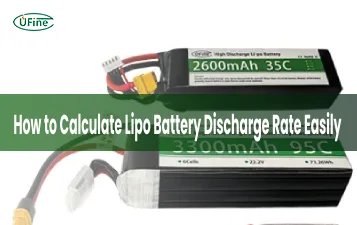
LiPo Battery Discharge Rate Guide & Calculation Tips
Understand LiPo battery discharge rates, C-ratings, and how to calculate max current. Essential guide for RC, drones, and electronics users.
High‑Capacity 3S LiPo Batteries: 5000 mAh vs. 10000 mAh
Compare 3S LiPo 5000mAh vs 10000mAh batteries by weight, power, and use. Find the best fit for your drone, RC car, or boat setup.
Top 5 Applications for Small 3S LiPo Batteries
Small 3S LiPo batteries power drones, RC gear, wearables, and robotics with high energy and low weight. Making them ideal for compact electronics projects.
Building and Charging Your Own 3S LiPo Pack: A Step‑by‑Step Guide
Learn how to build, balance, and charge a 3S LiPo battery pack safely at home with this complete DIY guide for hobbyists and beginners.
How to Choose the Right LiPo Battery Plug Type?
Discover the best LiPo battery plug types, how to choose them, and expert tips for safe usage, soldering, and maintenance.
